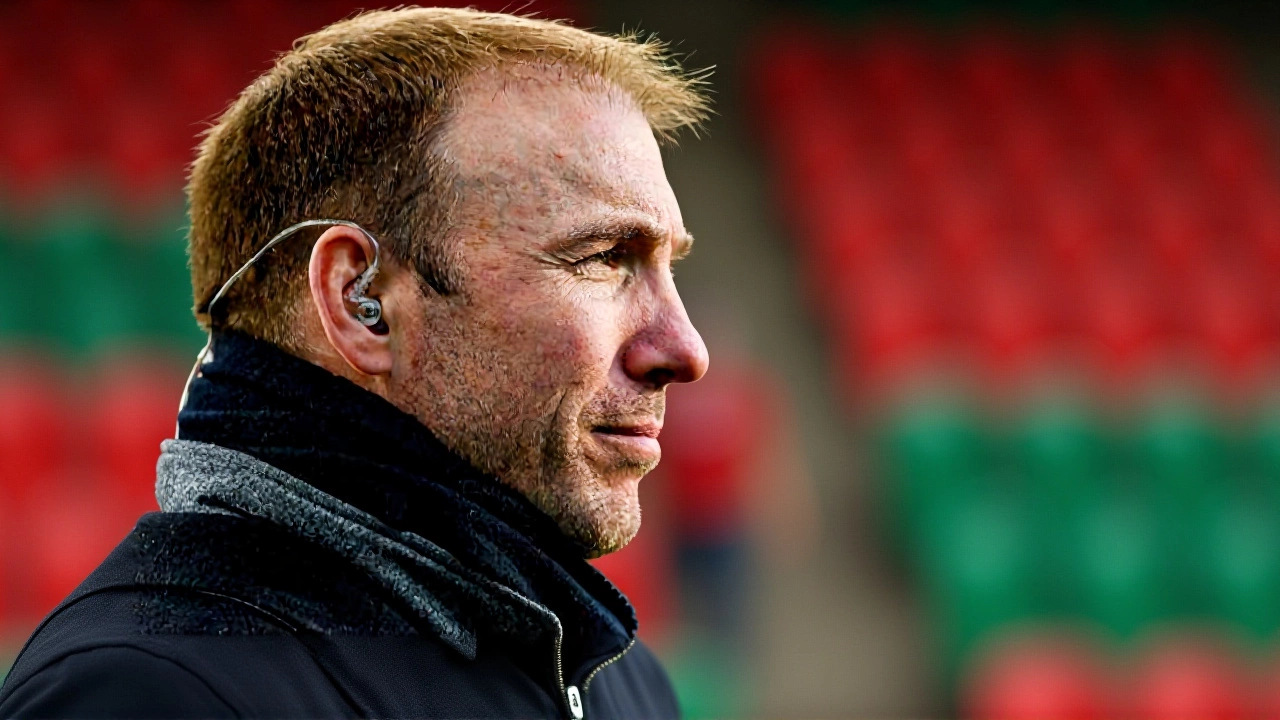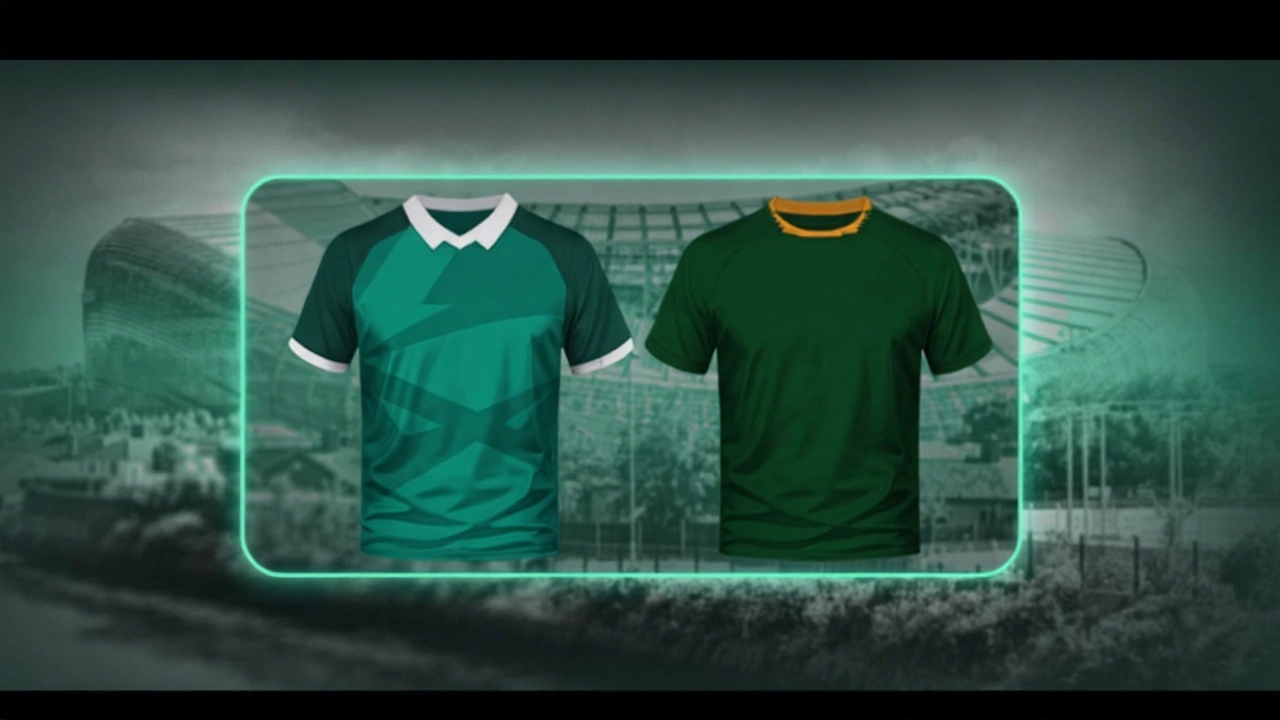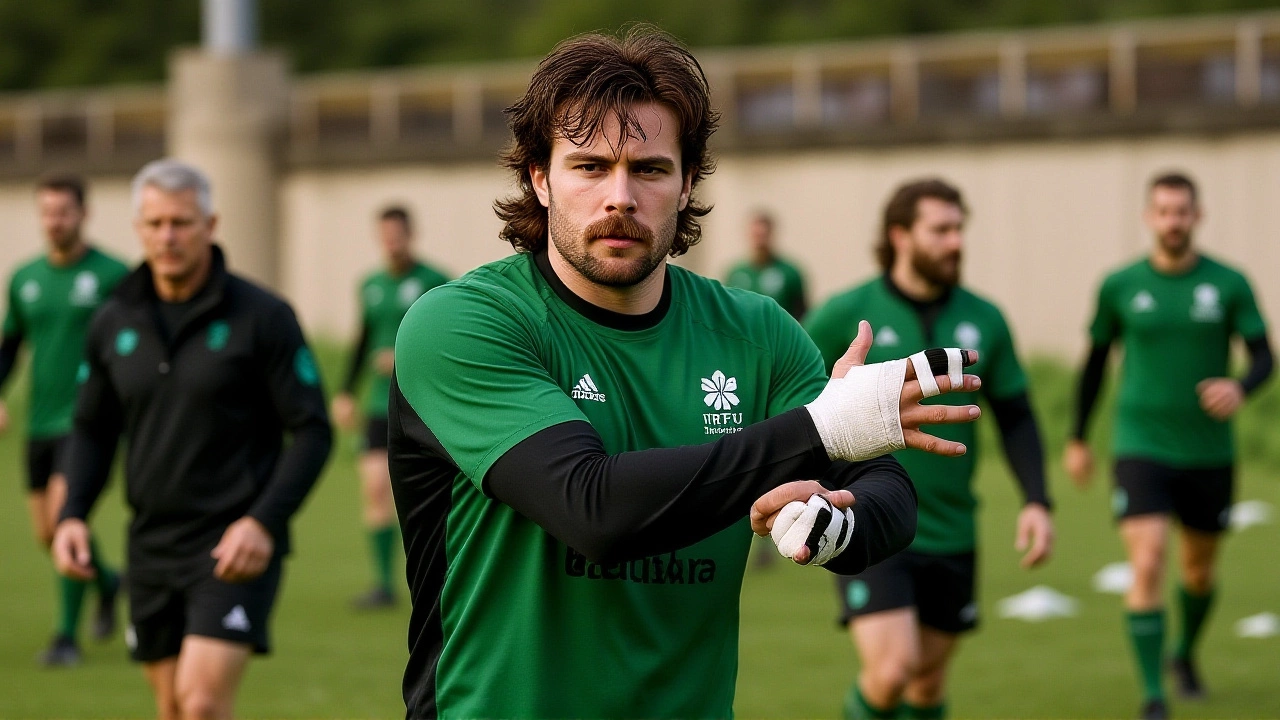When Mack Hansen stepped onto the pitch at Dublin on Saturday, November 22, 2025, just before 17:40 GMT, it was a relief — not just for Ireland fans, but for the entire Irish Rugby Football Union. The 27-year-old full-back, born in Australia and qualified for Ireland through residency after joining Connacht Rugby in 2019, had been a question mark all week. Injury concerns swirled. Then, hours before kickoff, the news dropped: he was fit. No details were given. No scans released. Just a simple, powerful confirmation: Hansen would play. And play he did — until the final whistle, when the South Africa national rugby union team — the Springboks — had done what few teams can: beat Ireland on their home soil.
From Injury Worry to Heartbreak
The tension leading up to the match was palpable. Hansen, who missed the 2023 Rugby World Cup with a hamstring tear during Ireland’s tour of New Zealand, had returned with quiet intensity this autumn. He’d started every match since September, his pace and defensive reads becoming critical to Ireland’s attacking structure. But last Tuesday, during training, he twisted his ankle. Reports whispered of a sprain. Team doctors were tight-lipped. Fans held their breath. Then, on Saturday morning, the Irish Rugby Football Union quietly confirmed he’d passed medical checks. No specifics. No timeline. Just the green light. It was classic IRFU: pragmatic, low-key, focused on results. And it worked — until it didn’t. The match itself was a chess match wrapped in physicality. South Africa, led by captain Siya Kolisi and coached by Rassie Erasmus, played with the cold efficiency of world champions. They didn’t dominate possession — they didn’t need to. They waited. They punished. And in the 63rd minute, with Ireland trailing 19-12, the moment came.The Kick That Echoed
Sam Prendergast, the 22-year-old Leinster fly-half making his seventh cap, lined up a 42-meter penalty. A routine shot. A chance to cut the gap to four points. The crowd rose. The kick sailed — and struck the upright. Rebounded. Fell harmlessly into the arms of a Springbok defender. The silence was louder than any roar. “Prendergast opted to kick a penalty to reduce the deficit but when his kick rebounded...” — that tweet from Rugby on TNT Sports, posted live from London, captured the moment that would define the match in hindsight. No goal. No momentum. Just a missed chance that turned into a turning point. South Africa sealed it with a late try from winger Makazole Mapimpi. Final score: 26-12. Ireland fought. They tackled like demons. They moved the ball with precision. But in the end, they were outclassed by a team that knew how to win under pressure.
Questions After the Whistle
By 9 p.m. that night, The Daily Telegraph had published its verdict: “Questions raised over Ireland’s future after plucky defeat by Springboks.” The headline wasn’t just about the loss. It was about what this loss meant for the program. Head coach Andy Farrell, who’s held the reins since 2019 and is contracted through the 2027 World Cup, faced mounting scrutiny. Ireland haven’t beaten South Africa since 2018. They’ve lost five of their last six Tests against the Springboks. And while they’ve climbed to No. 2 in the world rankings, they keep stumbling when it matters most: against the very best. The real concern? The gap between ambition and execution. Ireland have the talent. They have the structure. But when the lights are brightest, something breaks. Is it tactical rigidity? Lack of creativity in the final third? Or is it the psychological weight of expectation?What This Means for Irish Rugby
This wasn’t just a loss. It was a mirror. And what it reflected wasn’t pretty. The Irish Rugby Football Union has spent the last five years investing heavily in player development, analytics, and mental conditioning. Yet when the Springboks came to Dublin, they didn’t just win — they exposed cracks. Prendergast’s missed penalty wasn’t the cause. It was the symptom. The South African Rugby Union, meanwhile, celebrated quietly. Their CEO, Rian Oberholzer, issued a terse statement: “We respect the challenge. We earned this.” No fireworks. Just the calm of champions who know how to grind. For Ireland, the autumn series ends here. But the real work begins now. The IRFU’s next board meeting is scheduled for December 5. Will they re-evaluate Farrell’s game plan? Will they bring in external advisors? Will they reconsider how they prepare for high-stakes Tests? No one’s calling for his head. Not yet. But the whispers are growing louder.
Looking Ahead
The 2027 World Cup is less than two years away. Ireland are expected to be contenders. But to get there, they’ll need more than grit. They’ll need evolution. Hansen’s fitness was a win. But winning isn’t enough anymore. Beating the world champions? That’s the new baseline.Frequently Asked Questions
Why was Mack Hansen’s fitness such a big deal for Ireland?
Hansen is Ireland’s most dynamic full-back, combining speed, defensive awareness, and counter-attack threat. His absence in the 2023 World Cup exposed a gap in Ireland’s backline depth. His return against South Africa wasn’t just about replacing a player — it was about restoring a key weapon against elite defenses. Without him, Ireland’s attacking structure loses its width and unpredictability.
Who is Sam Prendergast, and why did his penalty miss matter so much?
Sam Prendergast, 22, is Ireland’s emerging fly-half and a product of Leinster’s academy. His penalty miss in the 63rd minute — with Ireland trailing 19-12 — was a pivotal moment. Had it gone over, the game would’ve been a one-score contest with 20 minutes left. Instead, it shifted momentum entirely. In high-pressure Tests, small errors compound. That kick didn’t lose the game — but it removed Ireland’s best chance to make it competitive.
How does this defeat compare to past Ireland vs. Springboks matches?
Ireland have lost five of their last six Tests against South Africa since 2018, including two World Cup quarterfinals. This loss was different: Ireland played with more structure and territorial control than in previous encounters. Yet they still lost by 14 points. The pattern isn’t about physical inferiority — it’s about finishing. South Africa scored three tries to Ireland’s one. In elite rugby, that’s the difference between winning and being a contender.
What’s at stake for Andy Farrell after this result?
Farrell’s contract runs until after the 2027 World Cup, so he’s not under immediate threat. But the IRFU board is under pressure to deliver a title. With Ireland failing to beat the top three teams (South Africa, New Zealand, France) in their last 10 Tests, questions are mounting about tactical innovation. If Ireland don’t beat South Africa in 2026 or 2027, Farrell’s legacy — and possibly his role — will be re-evaluated.
Is there a pattern in how Ireland lose to top-tier teams?
Yes. Ireland often dominate phases and territory but struggle to convert pressure into tries against elite defenses. They rely heavily on set-pieces and kicking strategy, which works against mid-tier teams. Against South Africa or New Zealand, those edges disappear. The Springboks didn’t just outplay Ireland — they neutralized their strengths. That’s a systemic issue, not a one-off.
What’s next for Ireland’s rugby program?
The IRFU will review performance data from the autumn series before the December board meeting. Expect internal audits on attack coaching, decision-making under pressure, and mental resilience training. No public changes are expected before 2026, but internal shifts — like new tactical advisors or a revamped game plan — are likely. The goal isn’t just to win more — it’s to win differently.
